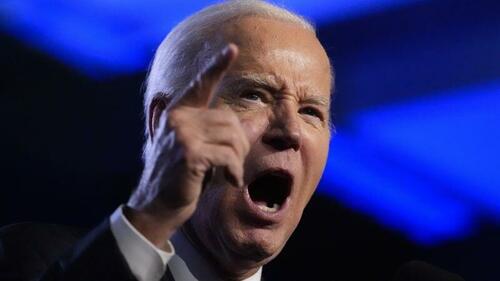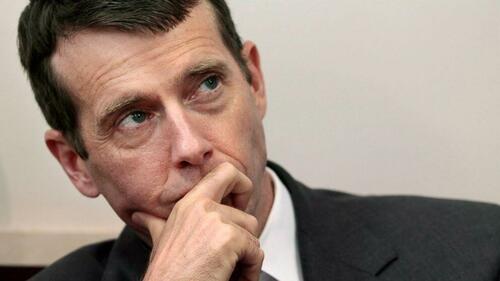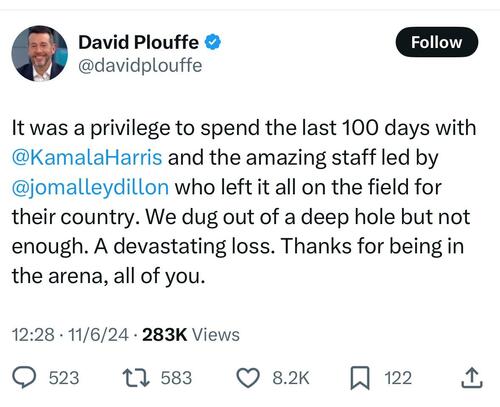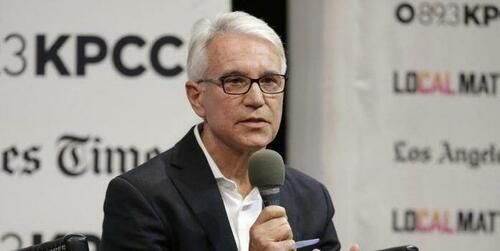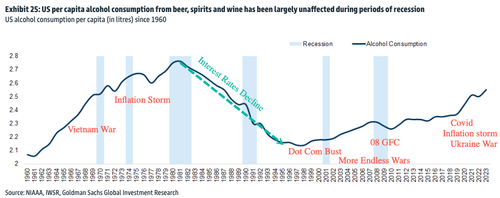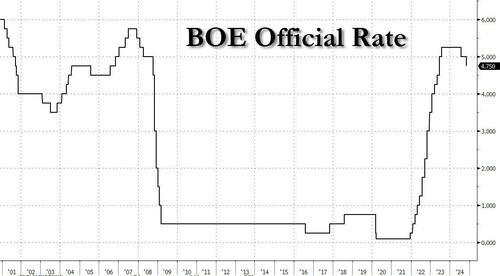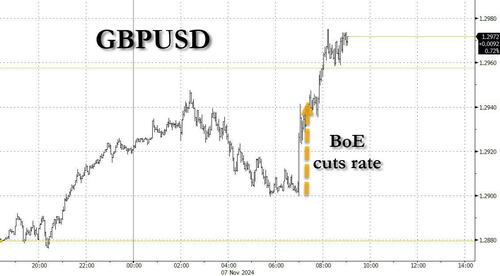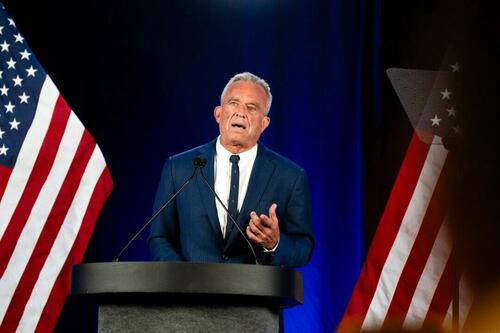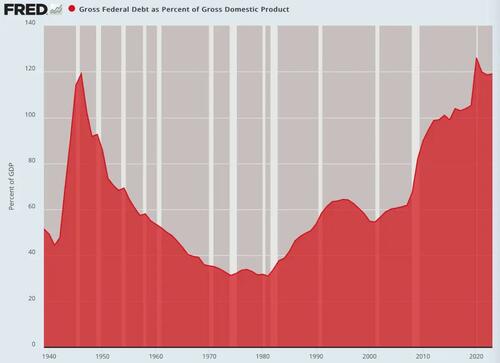Rabobank: The 2nd Trump Admin Is Staffed With MAGA Talent Pool Which Knows How Levers Of Power Work
By Michael Every of Rabobank
Houthi, what, when, where, why, how?
If there has been one key message in the Global Daily in the past few years it has been that major shifts in politics and geopolitics, especially ones people don’t like, are going to matter to markets. Yesterday made that point even if Trump’s re-election was not a grey rhino, let alone a black swan, if you had done real digging, rather than digging in, in advance. Yet the major market moves we saw yesterday are likely just the start, not the end of this process.
It now seems the Republicans may take narrow control of the House of Representatives as well as the Senate and presidency, giving them the trifecta. While that was also true in 2016, the first Trump administration was a chaotic affair initially aware of what it could do, with the Republicans deeply divided over ‘Trumpism’. By contrast, the second Trump administration is staffed with a motivated MAGA talent pool which knows how the levers of power work domestically and internationally. Many things could change very significantly, very quickly.
As a case in point, yesterday saw fake news reports the Houthis had declared an end to their blockade of the Suez Canal, with enormous implications for maritime global trade. I’ll confess that I briefly fell for it, as did a slew of geopolitical commentators. We all assumed a Houthi retreat was a logical response to a US soon not afraid to show what ‘deterrence’ means: as opposed to removing the Houthis from the global terror watchlist; ineffective bombing; an ineffective naval taskforce; asking Iran for help (as it attacks Israel); asking China for help (as it tells the Houthis which are its ships, and to leave them alone); and ocean carriers pay $2bn protection money to the Houthis to incentivize them. In short, while the US will now need to escalate to deescalate to deal with the Houthis, and others, moving parts will move.
People are already talking about a surge in freight rates if Chinese/global exporters try to flood the US with goods now to front-run any 60%(+?) US tariffs. As has been pointed out here repeatedly, there’s been no underlying improvement in US logistics since the Covid supply-chain crisis, and under a sudden surge of demand strains will be seen and freight rates will rise, with global ripple effects: and the ILA east coast US port strike still looms from 15 January.
However, also note Trump economic advisor Bessent is being considered for Treasury Secretary: I again underline he favors a ‘T+X’ tariff plan that gives global firms, say, two years to build factories in the US to avoid sanctions, reducing most of their direct inflation impact, but getting all the capex, supply-side, and trade-deficit narrowing gains – Samsung yesterday said this is what they plan to do. That might mean new economic models are needed for US tariffs – if economists want to model the world as it is rather than as they (or their models) want it to be.
Meanwhile, no sooner had Trump won than Germany’s government collapsed. Chancellor Scholz fired Finance Minister Lindner, whose FDP has left the coalition. A confidence vote now looms, which is likely to fail, at which point Germany has elections around March, in which the far right AfD and far left BSW are both expected to do well enough that perhaps no centrist coalition can be formed. Notably, Scholz wanted to bridge a €9bn fiscal hole with borrowing and offer subsidies to firms leaving the country due to its high costs. Lindner wanted to cut taxes, and spending by more, and de-regulate to stick to the holy-of-holies, a German balanced budget – as Germany becomes ever more unbalanced. Parts of both plans are arguably needed (and such thinking may well emerge in the US), but Germany will get neither now, and maybe not later.
The focus now shifts to what China’s policy response to a Trump win will be. We have heard repeated chatter of a large fiscal package of some form, even if little of this so far represents a real economy game-changer: but let’s wait and see what might appear if we were to get US tariffs. Imagine a go-go US pre-tariff boom and a go-go real China stimulus.
Similarly, we have heard market whispers that tariffs = a large CNY depreciation, and yesterday saw CNY weaken the most in one session for almost two years. However, if that happens, Trump will logically shout for even higher tariffs, and a downwards spiral begins that drags in the entire global economy. Can you see how this dynamic geopolitical and geoeconomic process is not your traditional macro or FX model? Or that the answer to most of the potential questions posed above is *NOT* “rate cuts”?
On which note, today is a Fed meeting decision day. The consensus is still another 25bp cut to take Fed Funds to 4.75%, despite the surge in long bond yields, stocks at a record high, Bitcoin at a record high, and gold close to one; and the strong Q3 GDP print, low initial jobless claims, and the good ISM services (and employment sub-index) reading. Presumably, the last hurricane-impacted 12K payrolls print will be the “stag” the Fed looks to, not the persistent “flation” from services to assets. That is notable given the impact of inflation is being seen in many quarters as a large part of the explanation for the Democrat’s stinging election defeat.
Moreover, as the Fed meets today, rumor swirls of Trump still wanting an ex-officio rate-setting advisory role, that Powell won’t be reappointed, and that Trump might even name his successor in advance, muddying the monetary waters. Assuming this is all true, one is going to have to start factoring politics (and potentially even geopolitics) into central banking (“You want a swap line? We have a quid pro quo for you.”), as our Fed Watcher Philip Marey has already alluded to recently. Again, that calls for new models to capture the world as it is, not as we would like it to be.
That process starts by looking around you and asking questions: Houthi, what, when, where, why, how?
As one starts thinking along those lines, note Brazil raised rates by 50bps, not 25bps, to 11.25% as expected, with pressure on the government to cut spending as the currency continues to weaken. Brazil, as a BRICS member and agri rival to key US sectors, especially in sales to China, could feature heavily in US geopolitical discussions going forwards.
In Australia, RBA Governor Bullock testified to parliament and argued a potential 10% Trump tariff on Australia would have little impact on it, but a 60% one on China may have an adverse effect – but they don’t know if it means significantly higher or lower inflation. Bullock also admitted the RBA had not done any scenario analysis on what a Trump presidency could mean for Australia. After all, it was only the most well-flagged election in the world, with equally well-flagged policies, with a well-flagged “50-50” potential outcome: why bother doing any work on that in advance?
Do you see what I mean about the need to ask better questions and to think about new economic models?
Tyler Durden
Thu, 11/07/2024 – 11:05
via ZeroHedge News https://ift.tt/yEIFX47 Tyler Durden

